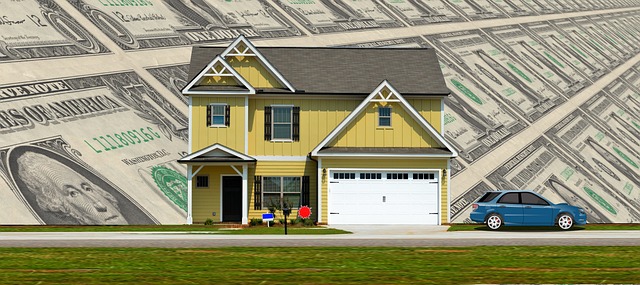Commercial property insurance is a vital shield against diverse business risks, offering financial protection for structures, assets, and liability coverage. Policies address unique challenges of various properties, from retail stores to industrial warehouses, with tailored coverage for general liability, property damage, business interruption, and specialized hazards. Liability insurance protects against claims, preserving business financial health, enhancing credibility, and contributing to long-term success. Proactive measures like inspections and appropriate systems reduce risks of natural disasters and fires. Business Interruption Insurance ensures continuity during unforeseen events, minimizing cash flow strain. Real-world case studies demonstrate commercial insurance's importance in recovering from unexpected events. Efficient claims processing, guided by specific insurer guidelines, expedites compensation and business restoration. The dynamic market evolves with digital transformation, emerging risks like cyberattacks, and changing business environments, requiring innovative products and AI for streamlined risk management.
In the dynamic landscape of business, safeguarding your commercial venture against unforeseen events is paramount. Commercial insurance isn’t just a necessity; it’s a strategic shield that protects your assets, employees, and reputation. This comprehensive guide delves into the intricacies of commercial insurance, equipping you with the knowledge to navigate risks and make informed decisions. From understanding basic coverage to exploring specialized policies like business interruption and liability, we demystify this crucial aspect of risk management, ensuring you’re prepared for whatever comes your way.
Understanding Commercial Property Insurance: Coverage Basics

Commercial property insurance is a crucial aspect of running a business, offering protection against potential risks and losses associated with commercial spaces. This type of insurance provides financial safeguarding for businesses by covering the structure of their properties, as well as valuable assets inside. The coverage basics typically include protection against damage or destruction caused by perils such as fire, lightning, storms, and earthquakes.
Key benefits also extend to business interruption, providing compensation during periods when operations are halted due to insured events. Additionally, commercial property insurance often includes liability coverage, shielding businesses from financial loss resulting from accidents, injuries, or property damage sustained on their premises. This ensures that if a claim is made against your business, you’re protected and can manage potential legal costs and settlements.
Different Types of Commercial Properties and Their Unique Risks

In the realm of commercial insurance, understanding the diverse nature of properties and their inherent risks is paramount. Commercial properties span a wide range, from offices and retail spaces to industrial warehouses and specialized facilities like hospitals or restaurants. Each type presents unique challenges and exposure to potential liabilities. For instance, a bustling retail store faces risks related to foot traffic, public liability, and merchandise damage, while an industrial warehouse involves concerns such as worker safety, equipment failure, and property damage from vehicles or weather events.
The risks associated with commercial properties are multifaceted, encompassing issues like slip-and-fall accidents, fire damage, theft, vandalism, and even environmental hazards. Commercial insurance policies are designed to address these varying risks, offering tailored coverage for general liability, property damage, business interruption, and specialized risks unique to each property type. By assessing the specific needs of different commercial properties, insurers can provide comprehensive protection, ensuring businesses are prepared to navigate unforeseen challenges and mitigate potential losses.
Key Components of a Comprehensive Commercial Insurance Policy

A comprehensive commercial insurance policy is tailored to protect businesses from various risks and potential financial losses. Key components include property coverage, which safeguards buildings, equipment, and inventory against damage or destruction due to perils like fire, theft, or natural disasters. This ensures business continuity by providing funds for repairs or replacements.
Liability protection is another critical element, shielding businesses from claims related to bodily injury or property damage caused to customers, employees, or third parties on their premises. It includes legal fees and settlement costs, offering vital financial safeguard against lawsuits. Additionally, commercial insurance policies often incorporate business interruption coverage, compensating businesses for lost revenue during temporary closures due to insured events.
Liability Insurance: Protecting Your Business from Legal Claims

Liability insurance is a crucial component of any comprehensive commercial insurance policy. It shields businesses from financial loss resulting from legal claims, offering protection against potential lawsuits and damages. Whether it’s a slip-and-fall incident on your premises or a dispute over product liability, liability coverage can help cover legal fees, settlement costs, and judgments.
This type of insurance is essential for maintaining the financial health of your business. By having liability insurance, you’re not just safeguarding your assets; you’re also demonstrating to partners, clients, and customers that you take responsibility for potential risks associated with your operations. This can enhance credibility and foster trust in your brand, contributing to long-term success in the competitive commercial landscape.
Common Causes of Commercial Property Damage and How to Prevent Them

Commercial property damage can stem from various sources, many of which can be mitigated with proper precautions and planning. Some of the most common causes include natural disasters like earthquakes, floods, and severe storms, which underscore the importance of having robust commercial insurance coverage tailored to these risks. Fire is another significant concern; regular maintenance and up-to-date fire safety systems can significantly reduce potential losses.
To minimize damage from more preventable sources, businesses should prioritize regular inspections and upkeep. This includes checking for structural integrity, ensuring proper drainage systems to prevent water damage, and regularly servicing heating, ventilation, and air conditioning (HVAC) systems. Additionally, implementing security measures such as high-quality locks, surveillance systems, and secure waste management practices can deter theft and vandalism. These proactive steps not only protect physical assets but also contribute to a safer work environment for employees.
Business Interruption Insurance: Assuring Continuity During Disruptions

Business Interruption Insurance is a crucial component of any comprehensive commercial insurance policy, designed to protect businesses from financial losses during unexpected disruptions. This type of coverage ensures that even if a covered event halts operations temporarily, the business can continue paying its essential expenses and maintain stability. Whether it’s due to natural disasters, civil unrest, or equipment failure, this insurance provides a safety net, enabling businesses to recover quickly and resume normal activities without incurring significant financial strain.
By offering protection against potential revenue losses and ongoing operational costs, Business Interruption Insurance allows business owners to focus on long-term strategies and recovery rather than immediate cash flow concerns. It’s a powerful tool that fosters resilience and continuity, ensuring that disruptions don’t turn into long-lasting crises for commercial enterprises.
Case Studies: Real-World Examples of Commercial Insurance in Action

Commercial insurance is a vital component for any business, and its importance can be best understood through real-world examples. Case studies offer tangible evidence of how commercial property and liability coverage protect businesses from potential risks and financial losses.
For instance, consider a small retail store that suffers extensive damage due to a fire. Thanks to a comprehensive commercial insurance policy, the owners are not only reimbursed for the loss of their physical assets but also receive funds to cover business interruption during the reconstruction period. This enables them to quickly bounce back, ensuring minimal disruption to their operations and customer experience. Similarly, a restaurant facing a food poisoning incident benefits from liability coverage that shields them from medical expenses and potential lawsuits resulting from the incident. These examples highlight how commercial insurance acts as a safety net, enabling businesses to navigate unforeseen challenges and continue thriving in an ever-uncertain market.
Navigating the Claims Process: What Every Business Owner Should Know

Navigating the claims process for commercial insurance is a crucial step for business owners, especially when facing unexpected events or accidents on their premises. The first step is to assess the damage and gather relevant information, including taking photographs and documenting any injuries sustained. This detailed record will be vital during the claim submission.
Once ready, business owners should contact their insurance provider promptly. Each insurer has its own procedure for filing a claim, so it’s essential to follow their guidelines carefully. Timely communication ensures that the claims process moves smoothly, potentially leading to faster compensation and restoration of operations.
Staying Ahead of Industry Trends: Evolving Commercial Insurance Landscape

The commercial insurance landscape is constantly evolving, driven by changing business environments, technological advancements, and shifting risk profiles. Staying ahead of these trends is crucial for businesses to secure comprehensive protection. As industries like real estate and retail navigate digital transformation, new risks emerge, such as data breaches and cyberattacks, which have led to a growing demand for specialized cyber insurance policies. Additionally, the rise of e-commerce has shifted consumer expectations, putting pressure on businesses to enhance their online presence and customer service, necessitating broader liability coverage.
Industry professionals and insurers must adapt by offering innovative products that address these emerging trends. This involves refining risk assessment methodologies to account for new and complex factors while also incorporating cutting-edge technology like artificial intelligence to streamline claims processing and risk management. By staying at the forefront of these developments, businesses can ensure they have the right coverage to mitigate potential losses and maintain their competitive edge in an ever-changing market.
